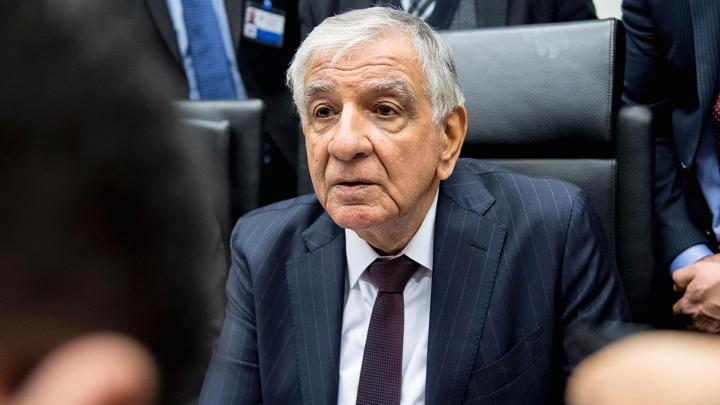Iraq can produce 5 million barrels a day in second half of 2017, oil minister says

2017-03-12T19:16:00+00:00
12 March 2017
Iraq will be able to produce 5 million barrels of oil a day in the second half of 2017, the country's Minister of Oil Jabbar Ali Al-Luiebi
said Tuesday. If Iraq were able to achieve that feat, it would come ahead of the market's expectations and potentially complicate Iraq's commitment to cut production under a deal with the Organization of the Petroleum Exporting Countries. "We achieved this great achievement of 4 million barrels per day ... middle of 2016, and now we have climbed up and we are reaching about 5 million barrels per day beginning of second half of this year," Al-Luiebi said during an interview at CERAWeek by IHS Markit. Iraq's production was nearly 4.47 million barrels a day in January, according to secondary sources cited by OPEC. Baghdad is supposed to be producing only 4.35 million barrels per day for the first six months of 2017 as part of an agreement by OPEC members to cut output in order to reduce brimming oil stockpiles.
Asked by CNBC how an extension of the OPEC agreement would affect plans to reach 5 million barrels a day, Al-Luiebi said, "It would premature to comment" because it is too early to tell whether the deal will be extended. OPEC officials said they will reassess the agreement and whether it should be extended by another six months at their May meeting. It is unclear how much oil Iraq is removing from the market at this point. A compliance committee will meet later this month to assess reductions by participating producers. Al-Luiebi's comments on Tuesday are significant because the time frame he offered for producing 5 million barrels a day is well ahead of expectations, said John Kilduff, founding partner at energy hedge fund Again Capital.
Previous forecasts were for Iraq to hit that production level by year-end at best and perhaps not until 2018. "Obviously, it's bearish. They're going to have to show considerable production constraint having that spare capacity. That's the kind of capacity historically only the Saudis have had," he told CNBC. It would also make it harder for oil prices to rally on other supply disruptions if Iraq had more spare capacity, he added. Baghdad could presumably tap that spare capacity during such disruptions. Iraq, OPEC's second largest producer, has presented obstacles to production cuts. In addition to missing its target in the first month of the deal, Baghdad quarreled with the producer group over how cuts would be measured. In November, OPEC agreed to reduce production by 1.2 million barrels a day, and 11 other exporters committed to cutting a combined 558,000 barrels a day.